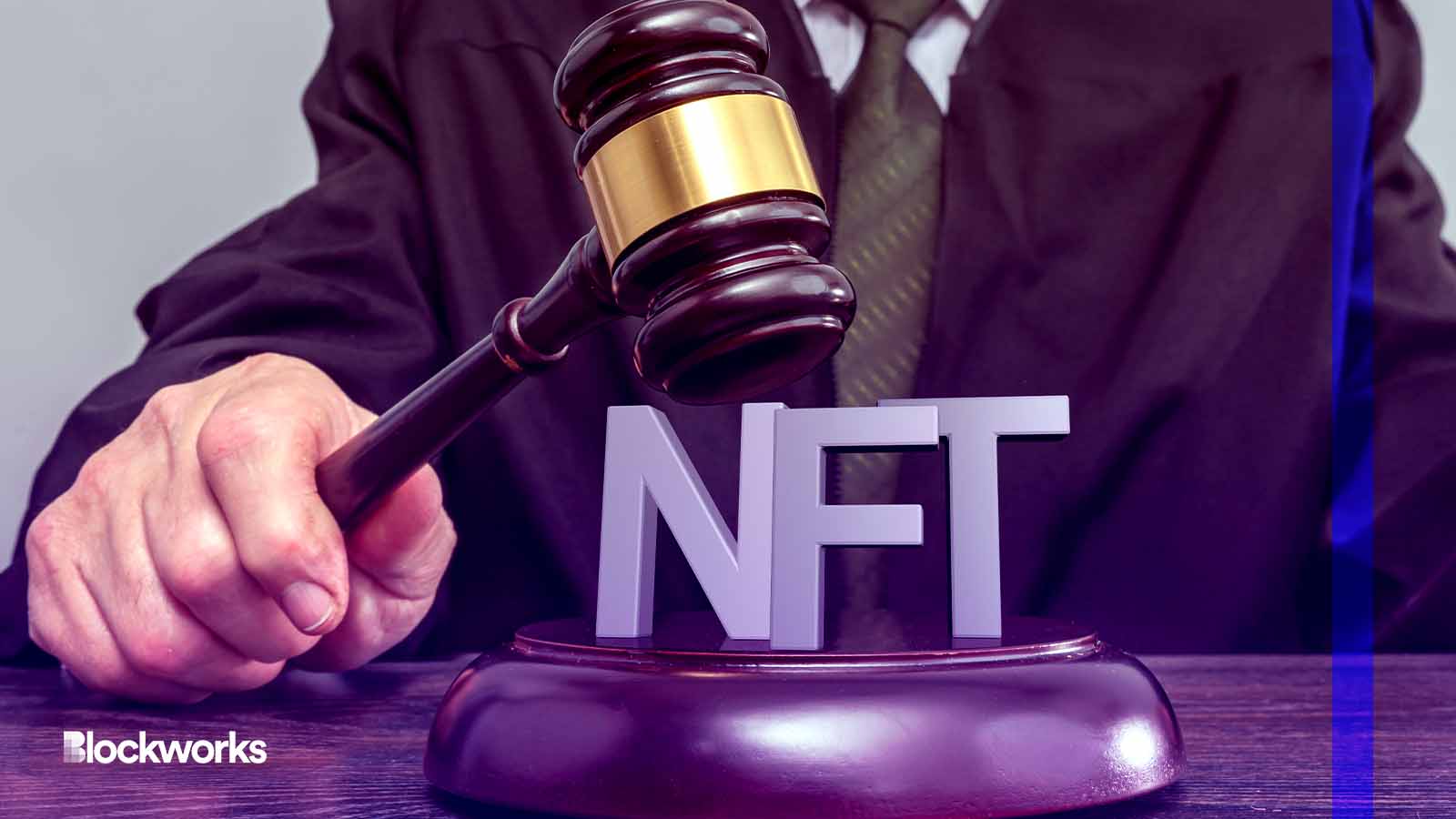SEC’s first NFT prosecution may set unsettling precedent
The outcome of the SEC’s first NFT prosecution has sent reverberations across the industry

TSViPhoto/Shutterstock modified by Blockworks
As cryptocurrencies have entered the mainstream over the last several years, the US Securities and Exchange Commission has not shied away from going after top tokens — and top projects.
But what the US securities regulator had not done, until Monday, was to pursue charges against an NFT project, alleging that a collection of digital artwork up for sale constituted a security.
The surprise ruling, imposed on the not-well-known company Impact Theory, sent industry participants scrambling. Coming between a growing number of SEC investigations, settlements and charges against the likes of Coinbase and Binance, plus individual tokens, the charges stood out.
And the central question has become whether the allegations levied against the Los Angeles-based Impact Theory, which involved about $30 million, were enough to set a precedent against NFTs more broadly as securities.
Read more: SEC charges Impact Theory with unregistered securities offering in NFT launch
Impact Theory, without admitting or denying the SEC’s charges, agreed to cough up $6.1 million and entered into a cease-and-desist order with the regulator poised to freeze its assets.
SEC attorneys claimed the company, which had done business with “hundreds” of investors, positioned and marketing NFTs as offering an investment pathway into its business — not being offered as simple one-off digital collectible sales.
An ‘investment into the business’
The SEC in its legal filing said the purchases of a number of the company’s NFTs, known as keys, were set up to position “the purchase of a Founder’s Key as an investment into the business, stating that investors would profit from their purchases if Impact Theory was successful in its efforts.”
The ensuing precedent outcome has big implications not only for individual, small-time NFT creators, but also the large companies that power their issuance and secondary sales, plus the NFT marketplaces that facilitate transactions.
In the cease and desist, government attorneys also targeted royalties, which have been contentious in the sector, ordering Impact Theory to amends its smart contracts so as to
“eliminate any royalty that Impact Theory might otherwise receive from any future secondary market transactions.”
NFT transactions have plummeted this year, with weekly trading volumes having fallen to around $70 million recently, down from $1.8 billion in August 2021, according to Dune data.
Adding the uncertainty around what constitutes an NFT security to an already-shaky market that has become far less lucrative than it once was could further slow the market, industry participants told Blockworks.
NFT powerhouses, including the marketplace Magic Eden, have been paying attention.
Joe Doll, Magic Eden’s general counsel, said in a statement that the “biggest takeaway” from the Impact Theory case is that the “regulatory framework applicable to NFTs is being developed real-time while the industry watches and awaits clarity.”
“Now, more than ever, it’s critical that the NFT creators seek the advice of the experienced securities counsel familiar with crypto to ensure their project is following best practices,” Doll said.
The SEC’s crypto priorities
Brian Frye, a professor at the University of Kentucky College of Law and expert on NFT regulation and crypto copyright issues, told Blockworks that the settlement appears to have been overdue — not for Impact Theory, specifically, but for the SEC deeming an NFT collection as a security.
“There is no real reason why NFTs would fall outside the SEC’s regulatory authority, especially given how they’re used in practice…and it seems to me, if you look at the economic reality of most NFT projects, the economic reality is that it’s selling a security.”
That’s because — as demonstrated “really clearly and explicitly in this particularly case — the structure of the NFT is claiming that “when you buy one of these NFTs, you are, in effect, purchasing a security interest in the company, and your benefit will primarily be your ability to resell the NFT to someone else for profit.”
While it may serve as a grim surface-level outcome for NFT investors and builders, the settlement may “oddly enough” as a “regulatory juncture” be able to “actually push for positive change,” according to Akash Mahendra, director at Haven1 Foundation and portfolio manager at Yield App.
Noting the NFT market falling to a two-year low in August, Mahendra said that the “unprecedented action against an NFT company” could “potentially inject much-needed accountability into the NFT ecosystem.”
“Falling under SEC scrutiny wasn’t entirely unforeseen, given the resemblance between NFT advertisements and traditional investment contracts,” he told Blockworks. “Assurances of perpetually soaring floor prices and unwavering developer support have raised regulatory eyebrows — particularly as they mirror practices seen in the world of traditional securities.”
Where the digital collectible cards may fall, according to Frye, comes down to the SEC’s interest in terms of the vast world of crypto-related prosecution.
“Is this the kind of thing the SEC looks like they want to regulate?” he said. “It’s a question of what the SEC thinks of it being in its regulatory landscape…The SEC has still not coherently articulated what its regulatory goals are, and I think that’s a problem. The SEC should, as a regulatory agency, explain what it’s trying to accomplish. I don’t think it’s asking too much.”
Start your day with top crypto insights from David Canellis and Katherine Ross. Subscribe to the Empire newsletter.





